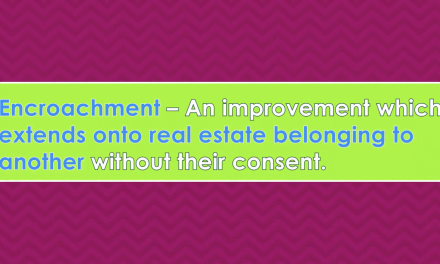The following is an excerpt from the new edition of the firsttuesday Career Manual, a best practices guide to help new real estate licensees establish their personal brands and boost income. In this excerpt, we discuss creating and personalizing an agent’s professional website.
Why you need an agent website
As a reader of this section, you likely fall into one of two categories of internet users:
- You don’t have a personal website, but you want one to display your listings; or
- You don’t have a personal website and you don’t think you need one to display your listings.
Whether you fall into the first or second category, consider this: a super majority of buyers, tenants and owners frequently use websites in their property searches. Thus, every real estate agent, whether in residential or commercial sales, leasing or mortgage originations, benefits by having a professional website. It is their window to the world of individuals who need real estate services today.
Of the website features presented on an agent’s website, the most helpful for buyers, tenants, and owners include:
- photos;
- property details;
- interactive maps;
- virtual tours; and
- neighborhood information.
When you do not have a website, building one expands your reach to potential clients who employ you and, in turn, you earn a fee for the services you render.
Start now: The quick and easy website
Your first step is to choose the web platform best suited to your needs, abilities, and schedule. Important as a basic, do your research before pouring time and energy into building a website on a platform that may not be the best choice for the long run.
Your broker’s office may already provide you with a website template. This gives you an immediate advantage as your broker already appreciates the advantages of an online presence. Occasionally, your broker will charge you a minimal IT fee to include your personalized real estate brand and listings on your own homepage in the larger company site.
On the other hand, when you want an easy set-up and readily available support, consider spending a little money as an investment. Consider using a template from a listing aggregate like Zillow or Trulia. Visitors to your website won’t know it’s being run by Zillow or Trulia, even though it’s powered by one or the other behind the scenes.
If you prefer to avoid Zillow/Trulia, there are some stand-alone website services such as:
- Agent BizzUp;
- RealEstateSites; and
- RapidListings.
A to-do list for every real estate website
Already have a website? Fine tune your website by following these tips.
- Invest sweat equity – your time, effort, and talent – to make your website a better offering. Commit a solid 3-5 hours each week to maintaining your website. A stale website with old information, articles and blogs is not just useless, it hurts your credibility. Better you have no webpages than a stagnant set of webpages. Adding new listings, new photos and new reviews constantly – weekly – goes a long way to keep your site fresh and relevant.
- Keep it clean. One of the worst things you can do to your website is bog down the homepage with too many links, menus or too much text. Poor design turns off visitors to the site and you’ll quickly have them looking for some other site that is friendlier.
- Brag about your achievements. When it comes to gaining potential clients’ trust, everyone “likes” a showoff. Consider occasionally highlighting one of your accomplishments on the homepage, such as belonging to the “longest-established brokerage” in your city or winning a real estate related award. Report on any education you complete and your civic involvement and its relationship to real estate.
- Incorporate videos. Investing in a couple solid videos about your services provides benefits beyond any single listing your videos promote. Videos show potential clients your work in action, while branding you as willing to go above and beyond to get your listings sold.
Similarly, to be really cutting edge, consider adopting the new virtual reality (VR) technology by providing virtual tours of listings on your site.
- Include reviews from past clients. Not only does this demonstrate your success as an agent, but it also improves web traffic to your site. Real estate is a business still heavily dependent on word-of-mouth, and your website is the ideal place to display those positive client testimonials – your personal touch.
- Spend time on search engine optimization (SEO). This is the science behind how clients find your website when you lace your website material with critical words. One of the most important aspects of gaining traffic is to make and keep your site specific. There are a million websites out there about “California real estate for sale.” So, the chance of your website popping up in someone’s internet search is slim with these generalizations. Potential clients are much more likely to search for property by referencing specifics, such as cities, zip codes, neighborhoods and even the type of property you work. Thus, tailoring the wording on your website to the exact area you serve and the type of property and services you offer will boost your SEO.
Client Q&A Flyers
Use these Client Q&A Flyers to provide answers to questions commonly asked by your clients as an extension of your professional real estate services.
Each Q&A Flyer contains personalization instructions. Email editorial@firsttuesday.us when you need assistance or have any suggestions for improving the content or presentation of these flyers — we intend to be helpful.














